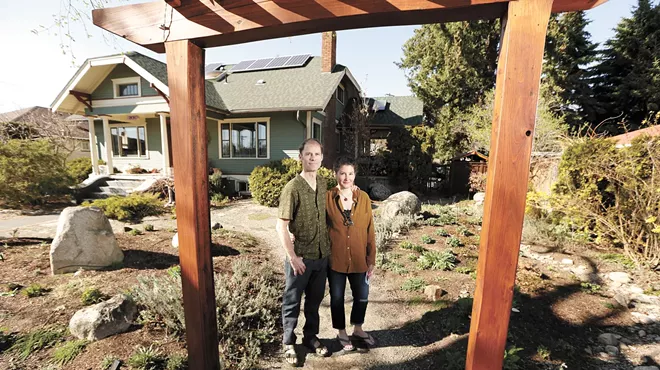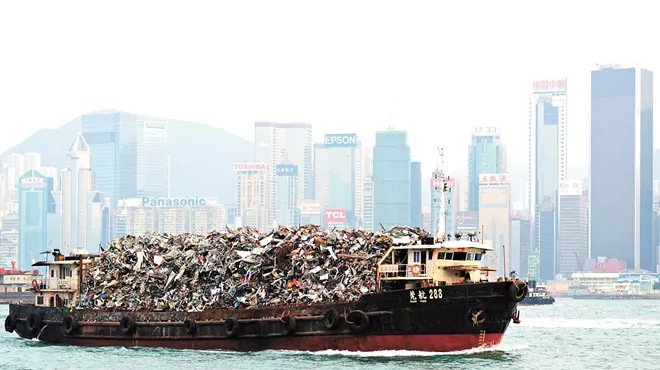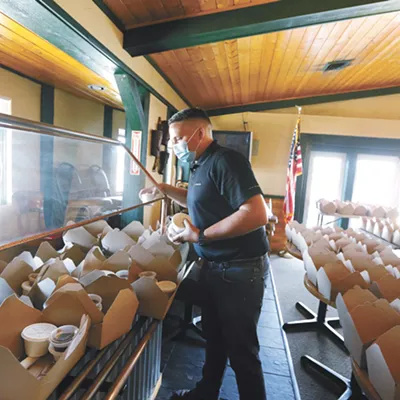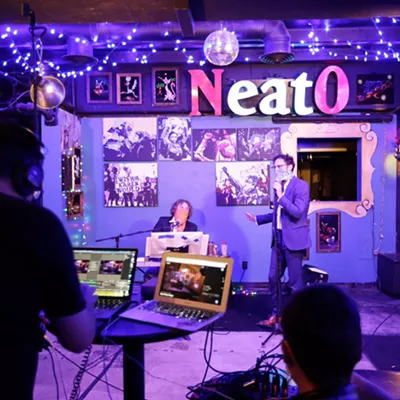
From her home, under the flight path to the Spokane International Airport, Amber Lenhart usually hears the recurring roar of airplanes overhead.
But that stopped a year ago. When the pandemic hit, days would go by without her hearing that familiar roar.
It wasn't just that people weren't flying anymore. They weren't driving either. The streets were emptier. Parking lots were vacant.
"We saw that people can work remote, that we can do our jobs from home," says Lenhart, who at one time worked for Pew Charitable Trusts, a nonprofit that aims to improve public policy. "In that job I would travel all over the country to Wisconsin, Hawaii, California, and I'd drive across three or four states a few times a month. And now we see we can do that all from our living rooms."
Staying home had a noticeable impact on carbon emissions, which plummeted globally last year by nearly 2 billion metric tons in 2020, "the largest absolute decline in history," according to the International Energy Agency. Most of this was due to reduced travel, the IEA says.
In 2021, emissions are back up again. Still, it can leave some experts wondering: Are there lessons the pandemic can teach us about how to combat climate change?
Lenhart, a former health policy specialist for the Spokane Regional Health District, says the climate crisis is also a public health crisis. While a huge pause in travel isn't sustainable, she hopes the experience of the last year may help people realize that it takes a collective approach, not an individualistic one, to tackle these issues.
Brian Henning, the director and founder of Gonzaga's new Center for Climate, Society and the Environment, has a similar hope.
"One can hope that as we learn the lesson — or, at least some people have — about the urgency of following the best advice of public health officials, we should be following the best advice of our climate scientists who've been warning us for decades of this growing problem and the need to bend the curve on climate change as well," Henning says.
The COVID-19 pandemic thrust a change to daily life that many hadn't experienced before. Some of the changes were positive for the environment: More people got into gardening, and that often meant replacing a lawn with gardening beds, reducing water use.
More people are also growing their own food, cooking at home and spending time outside hiking or biking, Henning says. Those are things that at least help people be more attentive to surroundings, appreciating the environment, he says.
"It made us sort of pause and reflect on what's possible and what's desirable," he says. "It just forced us to be more contemplative, more intentional about our lives. And so by disrupting the routine of wake up, go to work, come home, now our sense of what's possible and our collective imagination has shifted a bit."
In the short term, however, those things have far less of an impact on the environment than the reduction in travel. And either way, shutting down the transportation industry isn't the answer.
"The big pause in the pandemic is sort of causing us to realize what's possible, but it's not a solution," he says.
Instead, Henning says it's more important to clean the electricity grid. Washington's 2019 Clean Energy Transformation Act, which commits the state to an electricity supply without greenhouse gas emissions by 2045, is a good example, he says. More electric vehicles and buses would help, too. He says about 40 percent of climate pollution emissions are affected by personal action, and the other 60 percent are "structural systemic issues that need to be addressed at that level."
Henning adds that a Clean Fuels Act in the state Legislature, which aims for a 20 percent reduction in the state's car and truck pollution by 2035, would be a good step. As would the Climate Commitment Act in the Legislature that, among other things, puts a cap on greenhouse gas emissions.
He adds that it's important that communities are created in a way that doesn't require constant car transportation. While working from home may have helped reduce transportation for a time, if it drives people to move out of city centers into suburban neighborhoods, that may turn out to be a negative for carbon emissions.
Ideally, Henning says, communities would be created in a way that people can work, live and play all in one area without driving.
"But we instead keep building communities that are solely residential on the outskirts, away from business," Henning says. "So you have no choice but to be in your car all the time."
When everything first shut down a year ago, Lenhart was encouraged.
"I felt at first that people were coming together around the issue, that people will recognize the importance of public health and listening to public health experts like the health officer," she says.
But it didn't take long before that trust in the experts eroded. It wasn't just former Spokane Health officer Bob Lutz who was forced out; health officers across the state and the country were ousted or quit in the midst of the pandemic, often due to political pressure.
Now, Lenhart has more doubt that people can come together and face the climate crisis collectively.
"I would hope that people take a lesson from this that we do need to act quickly on an issue that might not be so visible — just like COVID, they're both invisible — and that we do need to take critical action," she says. "But seeing how people have responded to COVID, I have mixed feelings about whether people will actually take this to heart."♦



















